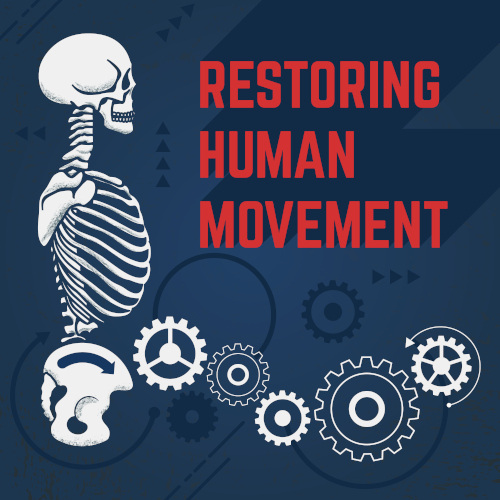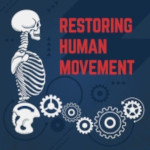Off Loading MSK Pathology 1st Hour
Recently I was asked to record the first hour of Theory of the Off-loading Chiropractic continuing education workshop that will be located in Huntington Beach CA on June 8-9th 2019.
Here is the rough outline of the course that I send to people interested in coming!
Off-Loading MSK & Neuro Pathology
How to Effectively Use Corrective Exercise, Loading & Strength/ Conditioning In Patient Care - A Conversational Workshop
Normal Structures In Normal Situations Don’t Hurt
Normal Structures In Ab-Normal Situations May Hurt
Ab-Normal Structures In Normal Situations May Hurt
Ab-Normal Structures In Ab-Normal Situations Probably Hurt
- Michael Shacklock
My name is Sebastian. Let me start by saying that this workshop was not my idea. Nor was proof reading this document.
Why am I writing this?
Simple.
It was suggested that I teach and get the LACC Class of Fall 2008 together for a “brainstorming” session. I would happen to be the moderator. I would like offer it to our class (deadline Feb 8th) before opening it to others.
As a general rule, invite people who are open-minded to a discussion.
Format For Workshop
This will be an open forum for conversation.
Nobody has all of the answers. Everyone has different experiences of “what works” for certain pathologies.
In this workshop, we will be learning from each other.
We’ll be working together to challenge our biases to better serve our patients with a “non-bias” recommendation of care.
My goals is for everyone to leave better than they came, including myself.
This will be a forum for learning. Everyone is welcome to challenge what’s being presented in a professional way.
Side conversation is welcome. It will not be G rated.
What You Will Learn
We tend to not know, what we don’t know, till we’re exposed to it.
Being out of school and away from other great docs tends to hinder our learning. Being married to certain techniques also hinder our critical thinking with complex cases.
I know what I can bring to the table, but the secret ingredient is what the participants (you) bring to the workshop.
Here’s what you can expect to learn from me:
- Effective Exercise Therapy Dosage And Selection
- Considerations Of Symptoms: Muscle Tone Vs. Tissue Damage
- Effective Verbal & Tactile Cueing For Strength And Conditioning (So You Can Co-Manage Effectively With Strength Coaches/ Trainers)
- Identification & Reduction Of Patient’s Unrealized Bias To Their Improvement
Effective Exercise Therapy Dosage And Selection
I hear this all the time.
“I’ve tried physical therapy for months and my pain decreased a little, but never went away.”
In this situation, I’d suspect the exercise was not cued well, the exercise was incorrect for the person or the dosage was incorrect.
When used correctly, corrective exercise can be more powerful than you’ve ever thought possible!
- Hip flexor tension gone after a birddog.
- Back back gone after deadlifting.
- Neck pain gone after a horizontal pull.
- Radiculopathies gone after cueing a simple plank.
Let me show you what I mean in class...
Considerations Of Symptoms: Muscle Tone Vs. Tissue Damage
When a patient says their hamstring is “tight,” is it really tight or does it just “feel tight?”
How does this information change our treatment (manual, correctives and ADLs)?
Investigation of their complaints in this way, you’ll be able to reduce their problems without using manual therapy and/or CMT.
Again you’ll have to trust me and experience it for yourself.
Effective Verbal & Tactile Cueing For Strength And Conditioning (So You Can Co-Manage Effectively With Strength Coaches/ Trainers)
Ever wonder why some people get hurt deadlifting and others can lift massive amounts without a problem?
Simple, many people lose tension.
Same with shoulder injuries in Crossfit, hip impingement in squats, and sports hernias in rotational sports.
Learning tensioners will assist you in co-management with fitness coaches, who’ll think you’re a damn genius for showing them these simple cues. Prevention under load starts with tension.
Identification & Reduction Of Patient’s Unrealized Bias To Their Improvement
Why do some people refuse care?
Why do some people (like your family member and close friends) turn away FREE care?
There can be so many reasons, BUT to sum it up in one sentence… they have an “unsaid concern or bias” against your help.
They could believe they’re “degenerating” or they’re “broken.” They may have been told a harmful belief in the past that’s affecting their future recovery.
Let’s find it.
Episode List
5 Simple Modifications For Lower Back Pain While Weightlifting
PREMIUM PODCAST LINK (for Clinicians only) In this week's podcast I discuss some simple plug-in modi...
Olivia Recovered From A Shoulder Labrum Repair
Olivia's Blog Post on the 5 stages Olivia reached out to me on Instagram and said.... "Hey man, you...
Chiropractic Student Listener Success Story 1 Geronimo
Recently I asked if some student listeners would be willing to share their experiences of how they u...
Off Loading MSK Pathology 1st Hour
Recently I was asked to record the first hour of Theory of the Off-loading Chiropractic continuing e...
Hitting A Mental Roadblock In Creation Of Content
I recently hit a small road block in creation of my workshop (Off-loading MSK Pathology) and had to ...
Struggles Unexpected Successes 3 Months Into Practice Jeremey Dinkin
I thought now would be a great time to finally interview one of my old interns, Dr. Jermey Dinkin DC...







